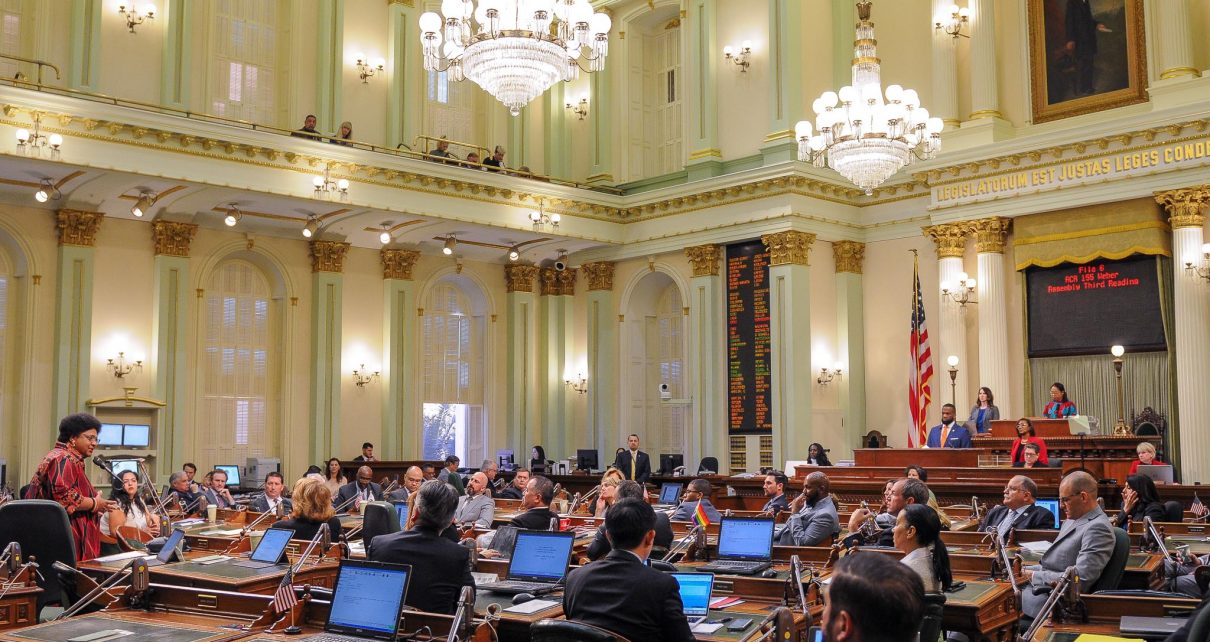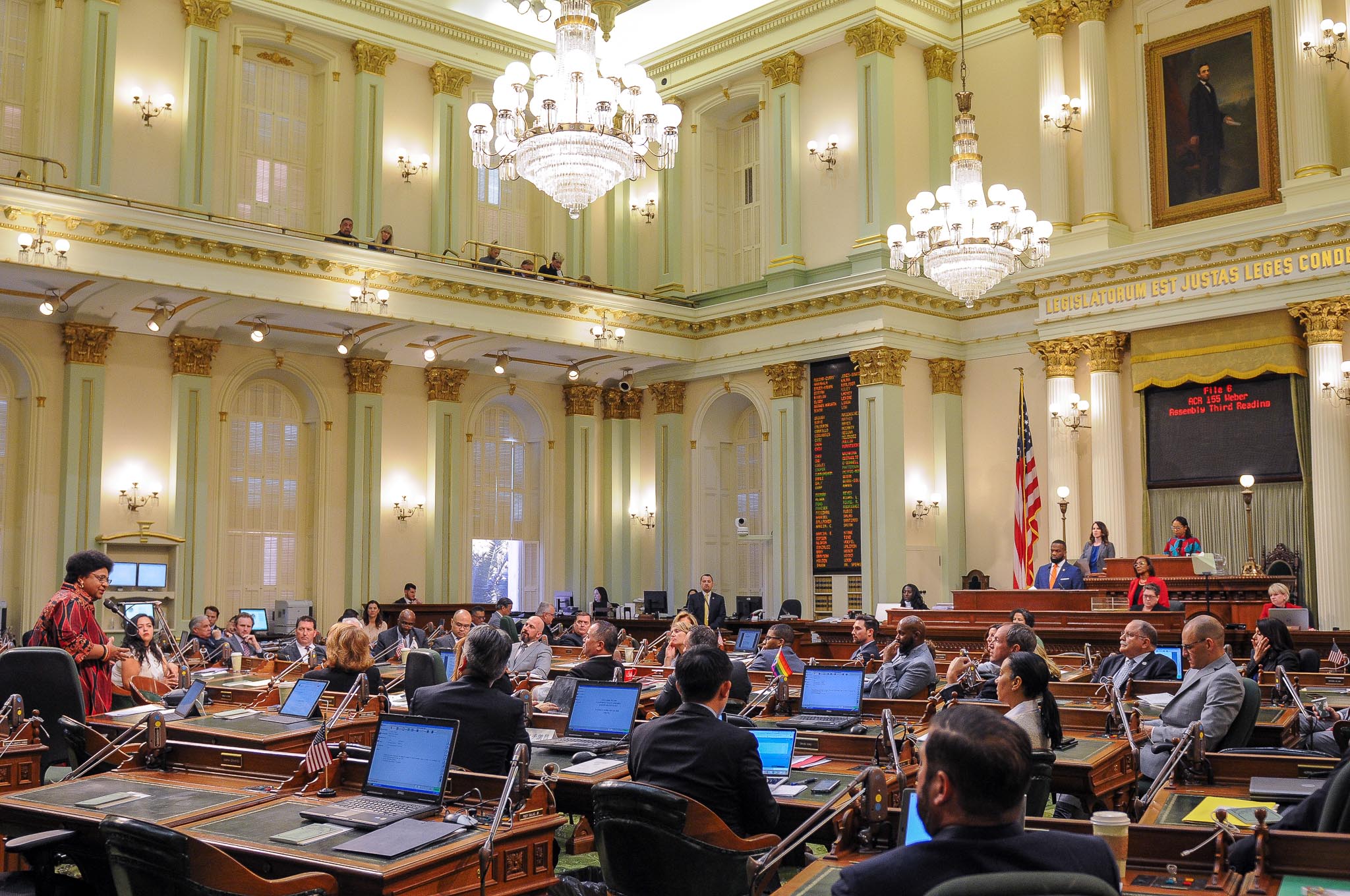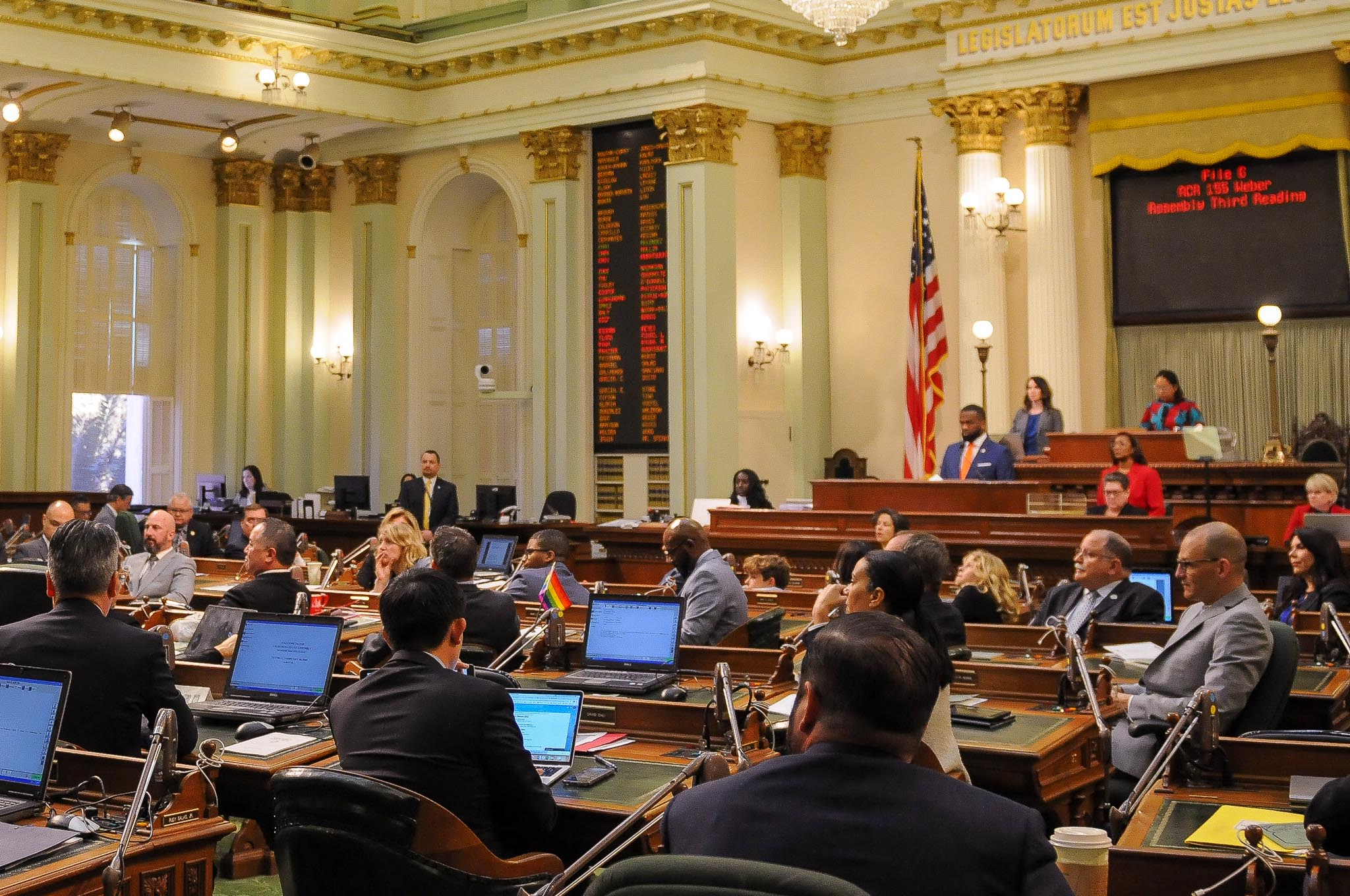
California State Assembly in Session. (Photo: Kevin Sanders for California Globe)
Turning Intent Statements into a Mandate
If the Legislature ‘intends’ for this department to use as much as they can in federal funding, then just mandate them to do so
By Chris Micheli, October 9, 2023 6:33 am
There are numerous instances in California statutes where we can find statements of intent by the Legislature. In my opinion, these intent statements are of limited use. As a result, I would prefer that intent statements be limited in their use. When used in legislation, they should remain general statements by the California Legislature. Broad statements of intent are most appropriate in my opinion.
For specific statements of legislative intent, I would rather see them turned into mandatory or permissive statutory language. We know that statutes in this state use the word “shall” to be mandatory and the word “may” to be permissive. When the Legislature has a specific intent statement, why not turn that statement into a mandatory or permissive one?
The following is an example from a 2023 California Legislative Session bill that is pending on Governor Newsom’s Desk:
It is the intent of the Legislature that the The department, in establishing a system pursuant to this section, shall maximize the use of available federal funds.
I appreciate this change in existing law because it turned a simple statement of legislative intent into a requirement that the specified state department actually do something. The existing law had no force or effect. It simply stated the intent of the Legislature that the department would hopefully do something. This bill amended that unenforceable language and instead would tell the department that they had to establish the specified system.
From my perspective, an appropriate statement of legislative intent would be broadly stated. Taking the example above, I think such a statement should be broad and read as follows, as an example:
It is the intent of the Legislature that the department pursue all efforts to secure and use the maximum amount of available federal funds in fulfilling its statutory duties.
In my example above, the intent statement is a broad, generalized statement of hope or desire that the state department work to secure and utilize the maximum amount of federal funds available for desired purposes.
On the other hand, I would use the bill language contained above in lieu of a specific intent statement. In other words, if the Legislature “intends” for this department to use as much as they can in federal funding, then just mandate them to do so. There is no reason for the Legislature to hope (i.e., intend) the state department will do what the legislative branch hopes it will do. Rather, the Legislature should require them to do so.
- Minors and the Capacity to Contract - July 31, 2025
- California Proceedings for Conciliation - July 30, 2025
- Commencing Civil Actions in California - July 29, 2025







